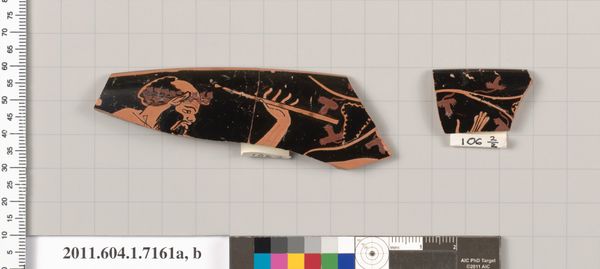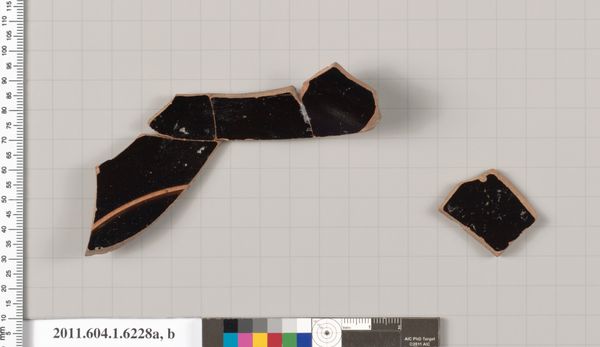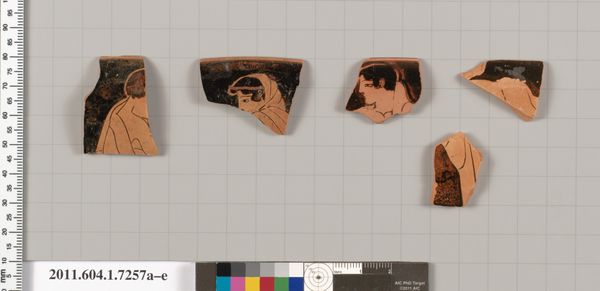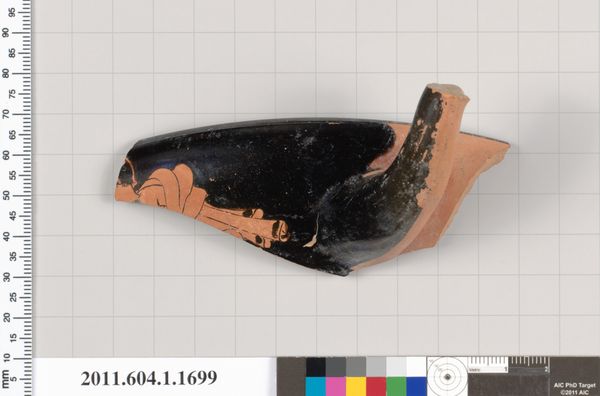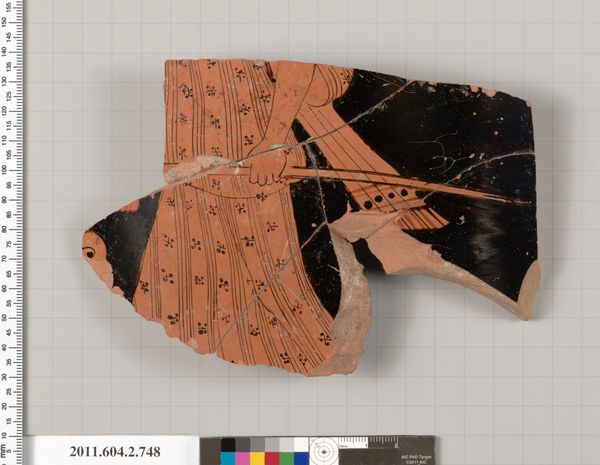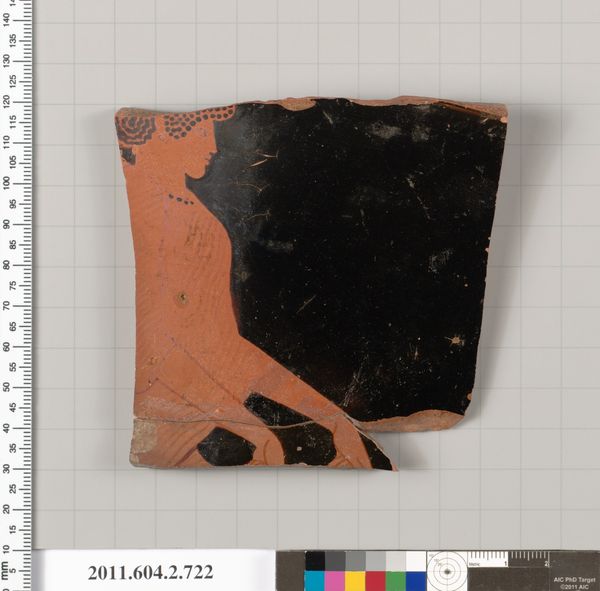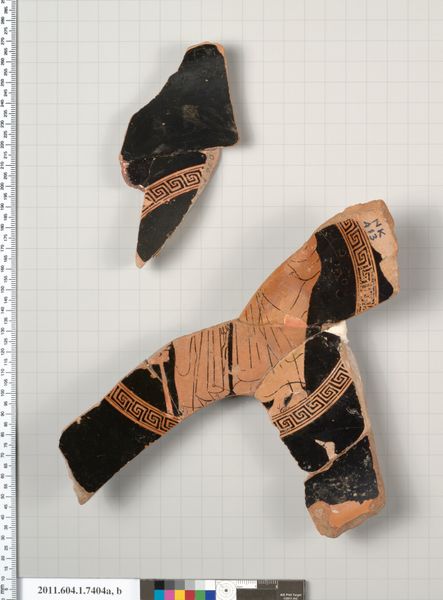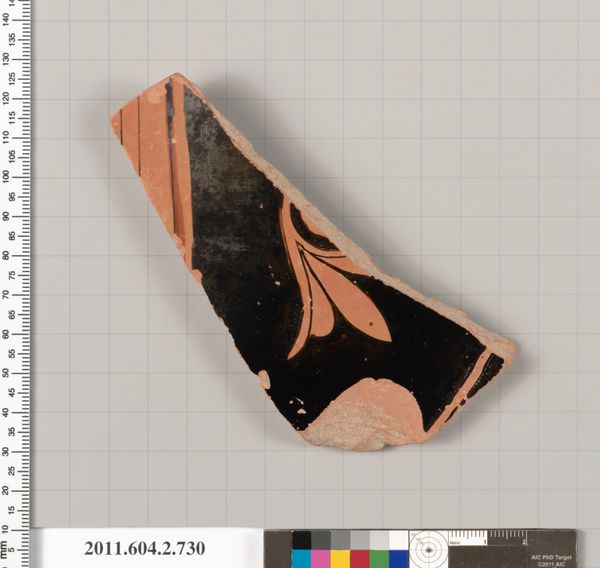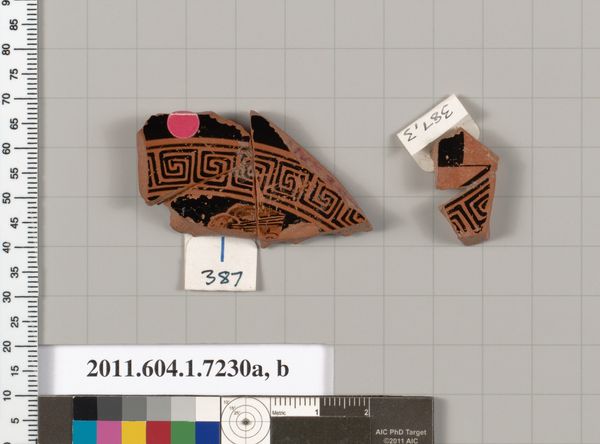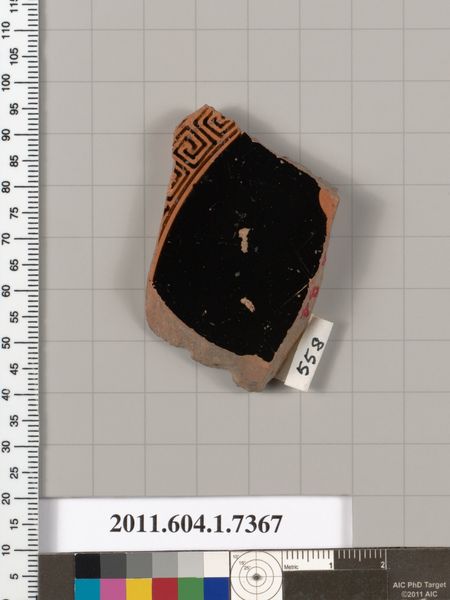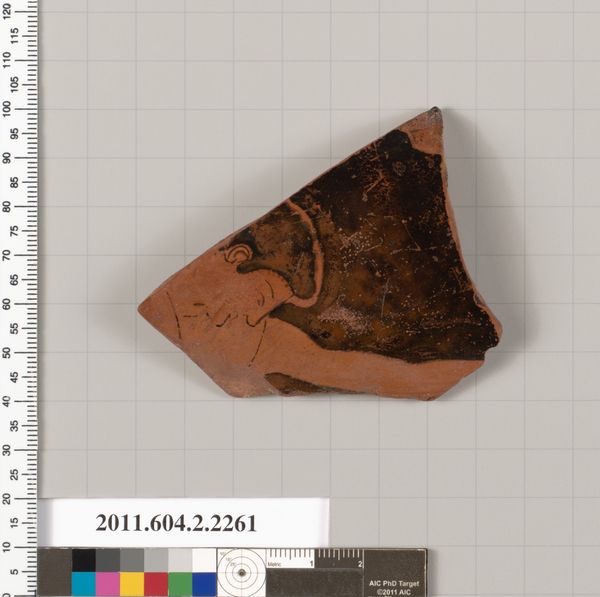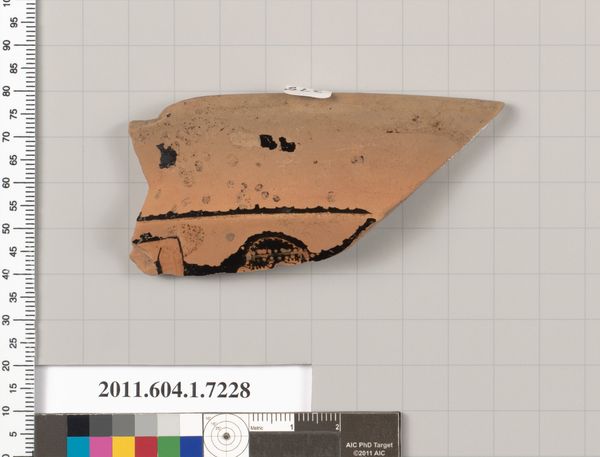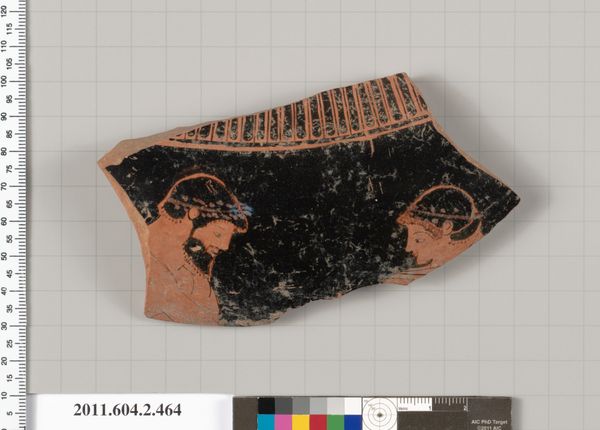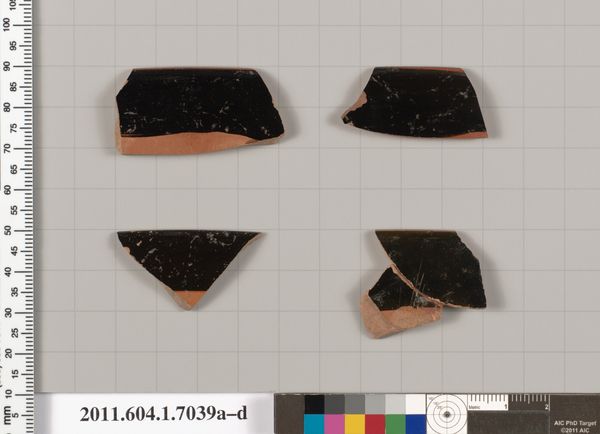
Terracotta fragment of a column-krater (bowl for mixing wine and water) 650 BC
0:00
0:00
painting, ceramic, terracotta
#
painting
#
greek-and-roman-art
#
ceramic
#
vase
#
roman-art
#
ancient-mediterranean
#
arch
#
terracotta
Copyright: Public Domain
Curator: This is a fragment of a terracotta column-krater, a bowl used for mixing wine and water, dating back to 650 BC. Editor: Even in this broken state, there’s something compelling about it. The warm terracotta, those decorative dark and reddish shapes along the rim…it speaks of ritual and communal activity. I immediately imagine hands gathered around it. Curator: Exactly. The act of mixing wine and water in ancient Greece was not just practical but symbolic. Water was associated with civilization and reason, wine with the ecstatic and the Dionysian. Combining them represented balance. Editor: So, even this fragment hints at the complex negotiations happening within their culture—between control and liberation, the rational and the emotional. Who had access to such a vessel? What did that represent in their society? Curator: Likely a wealthy household, suggesting the piece served a function linked to the elite. But consider, too, that communal drinking, like symposia, had a politically charged social currency in establishing relations within groups. Editor: It underscores how deeply embedded power dynamics were, even in these everyday objects. And to think, here we have just a piece of it! How many hands has this little fragment passed through since then? What stories does its survival whisper of resilience, not just of the ceramic itself, but of the values and customs it once represented? Curator: That brokenness, the visible damage, speaks volumes about time itself and our limited access to antiquity. Yet through such surviving objects we are invited to try and reimagine what was, in its context. Editor: Indeed. It prompts one to really consider not just what is present in a historical artwork, but equally what is absent, lost to history and power imbalances. The narrative such fragments provoke is always unfinished and deeply resonant, particularly as it still connects to modern times.
Comments
No comments
Be the first to comment and join the conversation on the ultimate creative platform.
